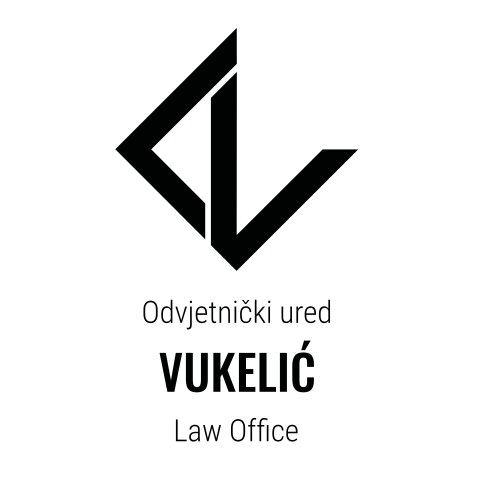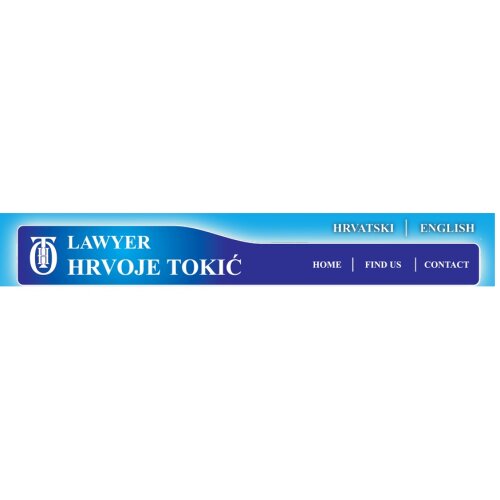Best Corporate Governance Lawyers in Croatia
Share your needs with us, get contacted by law firms.
Free. Takes 2 min.
Or refine your search by selecting a city:
List of the best lawyers in Croatia
About Corporate Governance Law in Croatia
Corporate governance in Croatia refers to the framework of rules, practices, and processes by which companies are directed and controlled. The goal is to balance the interests of a company’s stakeholders, such as shareholders, management, customers, suppliers, financiers, the government, and the community. In Croatia, corporate governance is guided by national laws, the Croatian Corporate Governance Code, and best practices recommended by regulatory bodies and industry associations. Good corporate governance helps ensure transparency, accountability, fairness, and long-term success for companies operating in Croatia.
Why You May Need a Lawyer
There are several situations where legal guidance on corporate governance in Croatia may be critical:
- You are establishing a company in Croatia and need advice on compliance requirements for directors and shareholders
- Your business is undergoing structural changes, such as mergers, acquisitions, or significant corporate restructuring
- You want to ensure your company complies with the Croatian Corporate Governance Code and other regulatory standards
- You face disputes between shareholders, board members, or other stakeholders regarding management or strategic direction
- You require assistance drafting or reviewing statutes, internal company policies, or board protocols
- You need guidance on disclosure obligations, reporting practices, or regulatory filings
- You are involved in cross-border transactions and need to harmonize Croatian corporate governance with international standards
- You wish to implement risk management or internal control frameworks
A lawyer specializing in corporate governance can help you navigate complex regulations, mitigate risks, prevent conflicts, and ensure your company’s ongoing legal compliance.
Local Laws Overview
Croatia’s corporate governance framework is shaped by several key laws and regulations:
- Company Act (Zakon o trgovačkim društvima) - The primary law governing the establishment, management, and structure of all business entities in Croatia
- Corporate Governance Code - A best-practice guideline for companies listed on the Zagreb Stock Exchange, promoting transparency, accountability, and responsible management
- Capital Market Act - Regulates the activities of publicly traded entities, including disclosure, reporting, and investor protection requirements
- Obligations Act - Affects contractual relationships, including duties among stakeholders in a corporate setting
- The Croatian Financial Services Supervisory Agency (HANFA) oversees compliance for financial and certain publicly listed companies
- Data protection and anti-money laundering laws also intersect with corporate governance frameworks
These laws collectively ensure that companies act in the best interest of their shareholders and other stakeholders, comply with reporting and disclosure obligations, and operate with integrity.
Frequently Asked Questions
What is the Croatian Corporate Governance Code?
The Corporate Governance Code is a set of recommendations and guidelines aimed at enhancing the management and control mechanisms of Croatian companies, especially those listed on the Zagreb Stock Exchange. It is not a binding law but follows the “comply or explain” principle, encouraging transparency and accountability.
Are private companies required to follow the Corporate Governance Code?
No, the Code primarily applies to publicly listed companies. However, private companies are encouraged to adopt its principles to improve governance and build trust with stakeholders.
What are the main responsibilities of a company’s Management Board?
The Management Board is responsible for running the company’s daily operations, implementing strategic decisions, and ensuring compliance with laws and company statutes. Board members must act in the best interest of the company and its stakeholders.
What is the role of the Supervisory Board in Croatian companies?
The Supervisory Board oversees and monitors the Management Board’s activities. It approves major business decisions, reviews company financials, and exercises control functions to safeguard shareholder interests.
How are shareholders involved in Croatian corporate governance?
Shareholders in Croatia exercise their rights through general meetings, including voting on significant company matters, appointing or dismissing board members, and approving annual reports and dividends.
What legal remedies are available if corporate governance rules are violated?
Stakeholders can seek remedies through internal company channels, regulatory bodies, or the Croatian courts. Remedies may include fines, removal of directors, damages for losses, and other corrective measures.
Is it mandatory to have independent board members?
For listed companies, having independent members on the board or supervisory board is strongly recommended by the Code, especially for committees such as audit and remuneration. It is not legally mandatory for all companies but considered best practice.
What are the main disclosure and reporting obligations under Croatian law?
Companies, especially those listed on the stock exchange, must regularly disclose financial statements, material events, shareholder information, and governance practices, in line with the Capital Market Act and related regulations.
How does Croatian law address conflicts of interest within company boards?
Directors and board members are obliged to disclose any personal interest in company transactions and must avoid actions that conflict with the company’s best interests. Failure to do so can result in liability and removal from position.
What are the consequences of non-compliance with corporate governance laws in Croatia?
Non-compliance can lead to regulatory investigations, financial penalties, reputational harm, loss of investor confidence, and potential civil or criminal liability for responsible individuals.
Additional Resources
If you need further guidance, you may find these resources and organizations helpful:
- Croatian Chamber of Economy (Hrvatska gospodarska komora) - offers services and information for businesses
- Croatian Financial Services Supervisory Agency (HANFA) - oversees financial and corporate regulatory matters
- Ministry of Justice and Public Administration - provides information on laws and justice-related processes
- Zagreb Stock Exchange - provides governance guidelines and best practices for listed companies
- Professional associations and local law firms specializing in corporate law and governance
Next Steps
If you require legal advice or assistance with any aspect of corporate governance in Croatia, consider these steps:
- Define your specific concerns or needs related to corporate governance
- Gather all relevant company documents, statutes, and records
- Consult a qualified Croatian lawyer or law firm with expertise in corporate governance
- Prepare a list of questions and clearly describe your goals and challenges
- Discuss possible solutions, compliance strategies, and any required actions with your legal advisor
- Stay informed of changes in Croatian laws and best practices by regularly reviewing updates from official bodies
Taking these proactive steps can help you maintain legal compliance, protect your business interests, and ensure a solid foundation for future growth in Croatia.
Lawzana helps you find the best lawyers and law firms in Croatia through a curated and pre-screened list of qualified legal professionals. Our platform offers rankings and detailed profiles of attorneys and law firms, allowing you to compare based on practice areas, including Corporate Governance, experience, and client feedback.
Each profile includes a description of the firm's areas of practice, client reviews, team members and partners, year of establishment, spoken languages, office locations, contact information, social media presence, and any published articles or resources. Most firms on our platform speak English and are experienced in both local and international legal matters.
Get a quote from top-rated law firms in Croatia — quickly, securely, and without unnecessary hassle.
Disclaimer:
The information provided on this page is for general informational purposes only and does not constitute legal advice. While we strive to ensure the accuracy and relevance of the content, legal information may change over time, and interpretations of the law can vary. You should always consult with a qualified legal professional for advice specific to your situation.
We disclaim all liability for actions taken or not taken based on the content of this page. If you believe any information is incorrect or outdated, please contact us, and we will review and update it where appropriate.
Browse corporate governance law firms by city in Croatia
Refine your search by selecting a city.

















